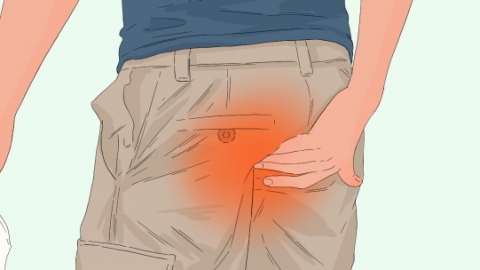What causes anal fistula?
In general, anal fistulas may be caused by poor perianal hygiene, consumption of spicy and irritating foods, untreated perianal abscesses, chronic non-healing anal fissures, Crohn's disease, and other factors. It is recommended to seek medical attention promptly, identify the underlying cause, and receive symptomatic treatment under a doctor's guidance. Specific analysis is as follows:

1. Poor perianal hygiene: Accumulation of sweat and secretions around the anus can lead to bacterial growth and invasion of perianal tissues, causing infection and eventually forming an anal fistula. Clean the perianal area daily with warm water, keep the area dry, wear loose-fitting, breathable cotton underwear, and change underwear frequently to reduce bacterial proliferation.
2. Spicy and irritating diet: Long-term consumption of spicy foods such as chili peppers and Sichuan pepper can irritate the perianal mucosa, causing congestion and swelling, which reduces local resistance and triggers anal fistulas. Adjust your diet to milder flavors, eat more vegetables and fruits like spinach and apples, drink plenty of water, and avoid spicy foods to prevent further irritation.
3. Untreated perianal abscess: If a perianal abscess ruptures spontaneously or drainage is incomplete, residual infection sites may gradually develop into fistulas. During the acute phase, follow medical advice to use antibiotics such as cefuroxime axetil tablets, amoxicillin capsules, or roxithromycin capsules to control infection. Prompt surgical incision and drainage of the abscess are necessary to completely remove the infected focus.
4. Chronic non-healing anal fissure: Repeated infections in anal fissures can allow inflammation to spread deeper into the perianal tissue, leading to the formation of chronic fistulas. After bowel movements, perform sitz baths with potassium permanganate solution, and apply medications such as glyceryl trinitrate ointment, compound algininate cream, or erythromycin ointment as directed by a physician to promote healing of the fissure.
5. Crohn’s disease: This chronic inflammatory bowel disease can affect the perianal region, leading to recurrent infection and necrosis of perianal tissues and resulting in anal fistulas. Follow medical instructions to take medications such as mesalazine enteric-coated tablets, sulfasalazine enteric-coated tablets, or olsalazine sodium capsules to control intestinal inflammation and reduce the occurrence of anal fistulas.
In daily life, avoid prolonged sitting or standing; get up and move for 5 minutes every hour. Develop regular bowel habits, avoid excessive straining during defecation, and maintain smooth bowel movements. Avoid alcohol consumption and staying up late, and reduce the risk of developing anal fistulas through a healthy lifestyle.





